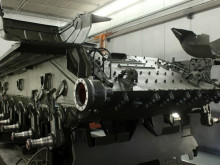Recruiting is a current problem not only for the Czech Army, but also for such armies as the U.S. Army
These words are confirmed by Ensign Petr Jurčaga, a graduate of the senior ensign course in the US. After graduating, he was in charge of the Voluntary Military Exercise (DVC) for high school students of the 7th Mechanised Brigade (7. mb), which took place this summer. In the following interview, Sgt. Jurčaga reflects on the development and direction of recruitment in the Czech Republic.
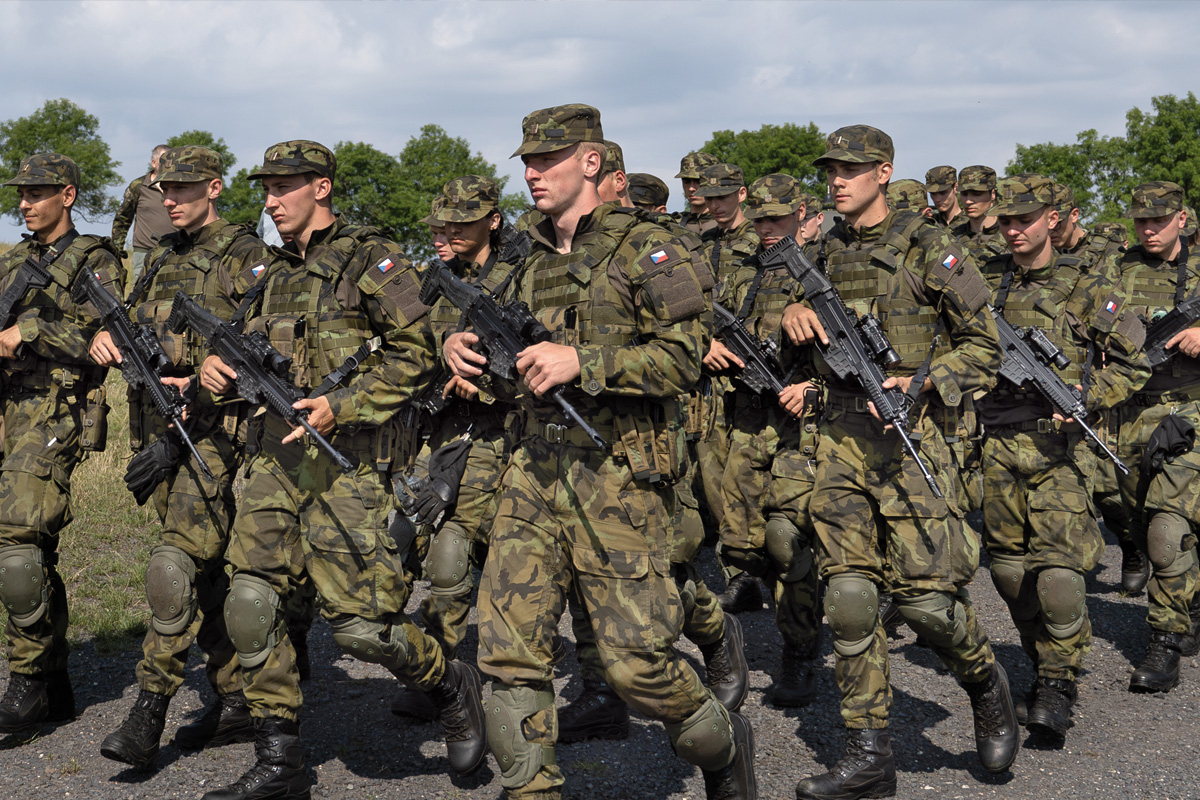
The topic of the final thesis in the senior warrant officer course at the Sergeants Major Academy (SGM-A) in the US, which you participated in this year, was the status and possibilities of building up the reserves with regard to the requirements of both the US Army and the Czech Army. Let's first go back to 2004, when basic military service ended and the active reserve was in its infancy. In your opinion, wasn't the decision to end basic military service then, without taking into account the building of additional reserves for the needs of the armed forces, premature?
I guess that's not a question for me directly, given the fact that these events and decisions took place twenty years ago. However, if we consider this decision at that time, the period of the fight against terrorism was beginning, and there was no high-intensity conflict on the horizon in Europe with an equally trained and armed enemy as threatened now. Of course, this was matched not only by the creation of reserves in the emerging professional army, which were probably not considered important, but also by the limited funding of armies around the world, which seemed like a good solution at the time. If we look at this decision through the lens of today, we conclude that it was not a very good solution. Today, we do not have sufficient, trained and equipped reserves for the armed forces to be able to step in within days or weeks and replace losses in a possible high-intensity conflict. The situation is compounded by the fact that we would be facing an enemy that is clearly defined in strategic documents and that is as well or similarly equipped and trained as our army and the armies of our allies. In the discussions that accompanied my entire time at SGM-A, we concluded that the existing forces of the fighting forces would be about seventy percent depleted in the first three months of the conflict.
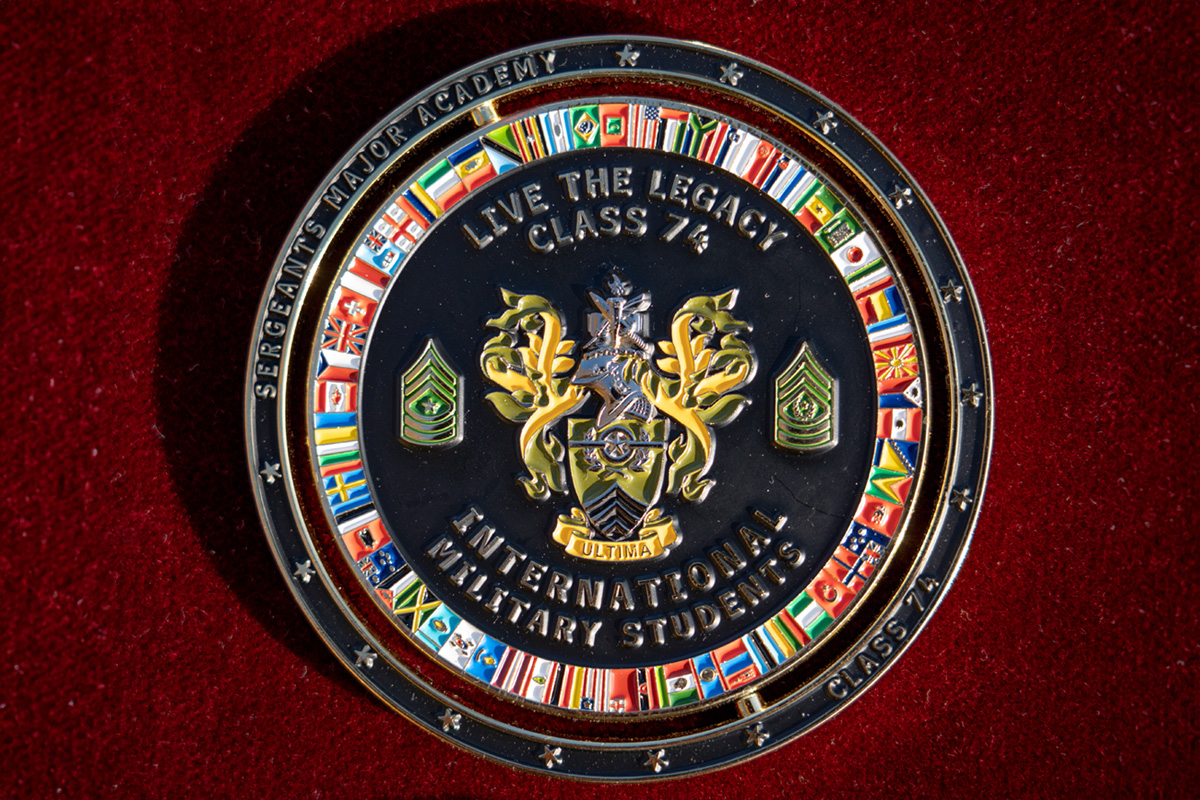
In order to restore the reserves, or to fill them optimally, it is necessary to be able to address the general public correctly, which will probably entail the need to redesign the entire recruitment system. One of the issues is, for example, the return of conscription education to schools. It was dropped from the school curriculum after 1989.
This is a topic that we have really addressed in SGM-A, and I have concluded that it is not entirely a question for the Czech Armed Forces as such to fix this. In my opinion, it is more about the mutual cooperation between the Ministry of Defence and the Ministry of Education and Sports, because the problem of recruitment is also linked to the physical readiness of the new generation and the requirement to serve the country. I think that the Czech Army has a lot to offer, the question is whether the army has the capacity to attend schools to such an extent that it would have an appropriate effect. It must be borne in mind that in the contemporary scale and number of tasks that the troops have to perform, the army does not have the capacity to address this strategic problem in a way that is successful and longer lasting. It is influencing the younger generation in schools that I believe is an important start to shaping their view of the state and the basis for successful recruitment. If we start influencing the young population from primary school up through secondary school or apprenticeships, then within five, ten or fifteen years we can get that back, not just in the successful recruitment into the armed forces. We do have problems with recruitment and interest in the service of the state here, as confirmed several times by the Chief of the General Staff of the Armed Forces, Lt. Gen. Karel Rehka. From my point of view, it would be good if conscription education, or some derivative of it in a quality treatment, started to be taught in schools again. Of course, in cooperation with the Ministry of Education and the Army of the Czech Republic. This is not so much because it will bring the young population closer to the army, but mainly so that the civilian part of the population knows how to respond to certain threats and can prepare for certain crisis events that may occur in the coming years. We need to talk openly about possible threats and prepare for them.
In your final thesis in the course of the warrant officer course in the US, you also reflect on the level of patriotism and national pride, both in the US and in the Czech Republic...
This is actually another key point of the preparation in schools - increasing national pride and patriotism. Unfortunately, the essential indicator of pride, patriotism and belonging is only various disasters. We can recall this, for example, in the recent floods in the Czech Republic, when part of the population rallied together and helped specific, often completely unknown people in the affected areas. The same thing happened during Hurricane Cathrine and the floods in the US, when the people of Texas in particular, who are a very proud and patriotic part of the American nation, rushed to help in the affected regions at a time when the National Guard had not even been called up yet.
However, during discussions on this topic in the course, it became apparent that patriotism is on the decline in the U.S. as impossible as it may seem in this country based on patriotism. Perhaps this is due to multiple programs for legal and illegal immigrants that can divide society. Nevertheless, every crisis still shows that patriotism is still strong in the US. The younger generation continues to grow up in a system that strongly encourages national pride and patriotism. This can be seen in schools where the national anthem is played at the beginning of the day and students are lectured about national heroes, history and traditions of the US itself more than the rest of the world. This was confirmed to me by my son, who attended school in El Paso for a year away from the military base. For young Americans, the US always comes first. We lack that attitude here. And then there is the problem of minority opinion becoming apparent in order to spread the disinformation campaign of our enemy, which is clearly laid out in the Czech Republic's defense strategy, as Colonel Foltyn points out. It is wrong that this minority is heard more than people who mean well by the Czech Republic and still have patriotic feelings. These activities can pull the nation's thinking and inclination to a side that is not in line with the values of the Czech Republic. I sometimes feel like we are still bent and not proud enough, which probably stems from our history. Then when you compare that to the US, the difference is awfully visible.
So what should be the main motivational pillar for the Czech population to start expanding the ranks of the professional army, active reserve and compulsory reserve?
The main pillar is to show the army as it really is, without lying to people. At the same time, the army must be able to take care of its people. These are the two main pillars that do not exist today in the form they should. Furthermore, it is not only a matter of prioritising the recruitment of young, promising people, but also of trying to retain experienced soldiers who are valuable to the army and who want to serve, whether they have served five, ten, fifteen or more years. These people are know-how carriers and we must retain them because they can greatly enrich the army with their experience. At the same time, the army needs to decide whether it really needs only physically fit and physically prepared individuals, or whether it also needs people with physical handicaps or those who are not so physically prepared to fight on the front line. Because when we talk about fighting in multi-domain operations, where we have space or cyberspace, we don't necessarily need a soldier who can do five hundred push-ups and run three kilometres in ten minutes. There we need a person who is able to look at the problem from a higher level, is able to encompass the problem on a larger scale, and will be able to look for solutions outside of established standards and habits. Also, the skills and abilities of a drone operator or a system administrator and planner may be different from the required skills and abilities of a frontline soldier-warrior. These issues are also addressed by much larger and better prepared militaries. In any case, the main motivating pillar must be national sentiment and belonging to the nation, its sustenance and independence. And every citizen must have that in him.
So should the military ease up on its demands or focus more on working with manpower?
We certainly won't cut back, we agreed on that in discussions with colleagues not only in SGM-A, but we should be able to adapt. We must learn to work with people's requirements and create meaningful concepts and systems for the soldiers. Of course, it is about being able to differentiate between requirements for combat and non-combat units, rear security or requirements for places where computer systems are operated or algorithms for artificial intelligence are created. You simply have to create the right system to get the right person in the right military place, which we can't do yet, or we have a warped system. It also doesn't always have to be direct recruitment for the job, but it can be a gradual growth into that system through military and civilian study for the benefit of the military. Of course, direct recruitment of talented people is unavoidable, because the army does not yet have the required experts in some fields. Let's call it talent management and human resource management. Following on from this, the Army or the Ministry of Defence must then create quality conditions for those soldiers and families it needs somewhere other than their current place of residence.
In your opinion, is there a line beyond which one should not go?
Those boundaries should be defined by someone other than me. In SGM-A we only analyzed the flaws of the system and why it can't or won't work with people. Surely the level of mental maturity of each individual should continue to be assessed. If we are talking about combat units, clearly some level of physical readiness or other prerequisites, even at the very beginning when they join the military. Of course, it is essential to have a sophisticated system of raising the level of not only physical readiness but also the overall combat readiness of the individual, including knowledge, skills and knowledge, which in turn will translate into better unit readiness.
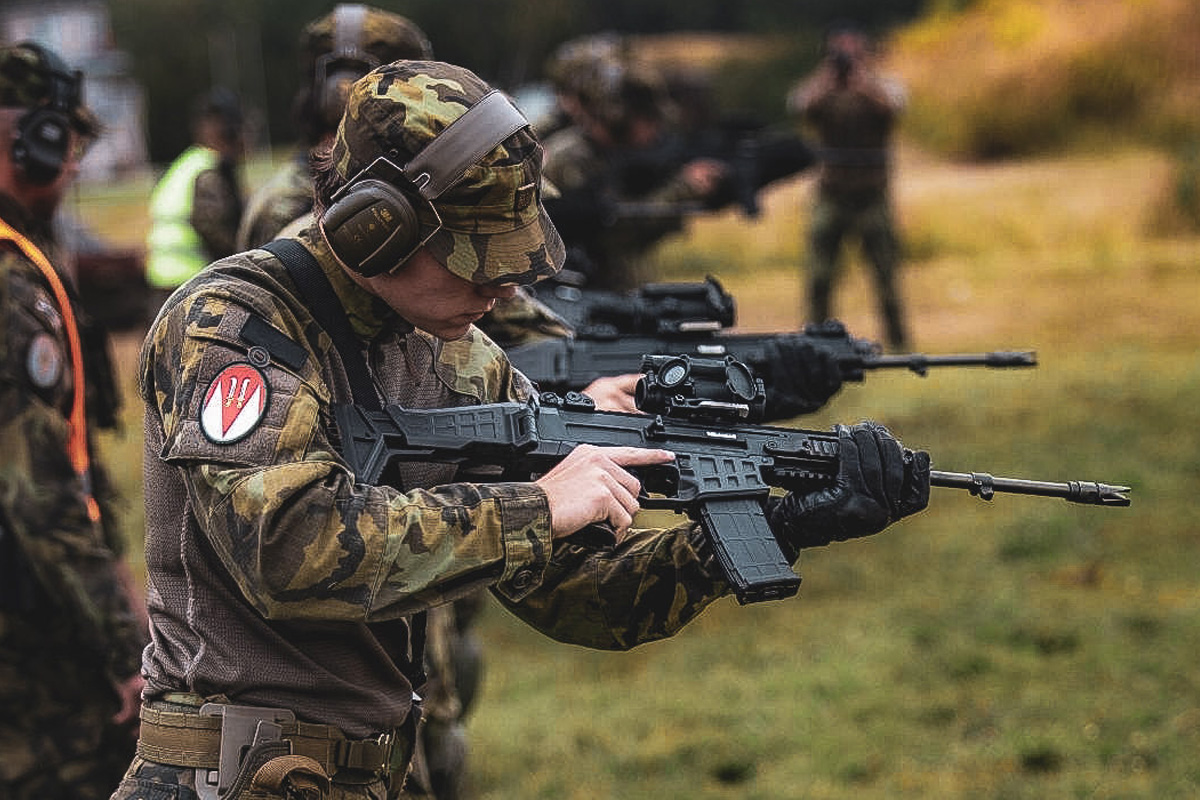
In the future, the Voluntary Military Exercise (DVC) could become a source of replenishment of the mandatory reserve, without which the eventual replenishment of troops would not be successful, especially in the event of a rapid need. Do you see DVC as a way to effectively recruit to the army and reserves?
The DVC that was conducted this year for high schools can be a really interesting tool for building advances at all levels. Whether we're talking about active or mandatory reserve, we need to acknowledge that the population doesn't know much about this exercise. I must also add that the army does not have much capacity to implement it. Some things will need to change so that this project can be implemented on a larger scale and bring in the much needed numbers of trained reservists. The biggest problem I see is the requirement for instructors. In order for the training to be of high quality, it places high demands on the instructors and their numbers. At the same time, however, instructors must perform tasks for the needs of their own units as a matter of priority. Returning to the active reserve, I believe that its members could take over the management and implementation of some parts of the DVC in the future. This would not only improve the readiness of the young population to defend the state and the nation, but could also contribute to an overall change of mindset in society. At the same time, we could raise the number of people in the compulsory reserve, of which we no longer have many after the end of basic attendance. We need to discuss what form DVC should take for the young population and, more importantly, how often to repeat these exercises. It is important not only to acquire knowledge and skills, but also to refresh them regularly - especially tactics and the use of new weapons. For example, as was the case with former years of full-time military service who were called up for repeated military exercises years later. It may not have been entirely popular, but not everything from years past was necessarily bad for the Republic and its defenses. So DVC may be the way to go, but we need to think carefully about not only steps A and B, but also steps C and D, so that the whole system makes sense in the long run.
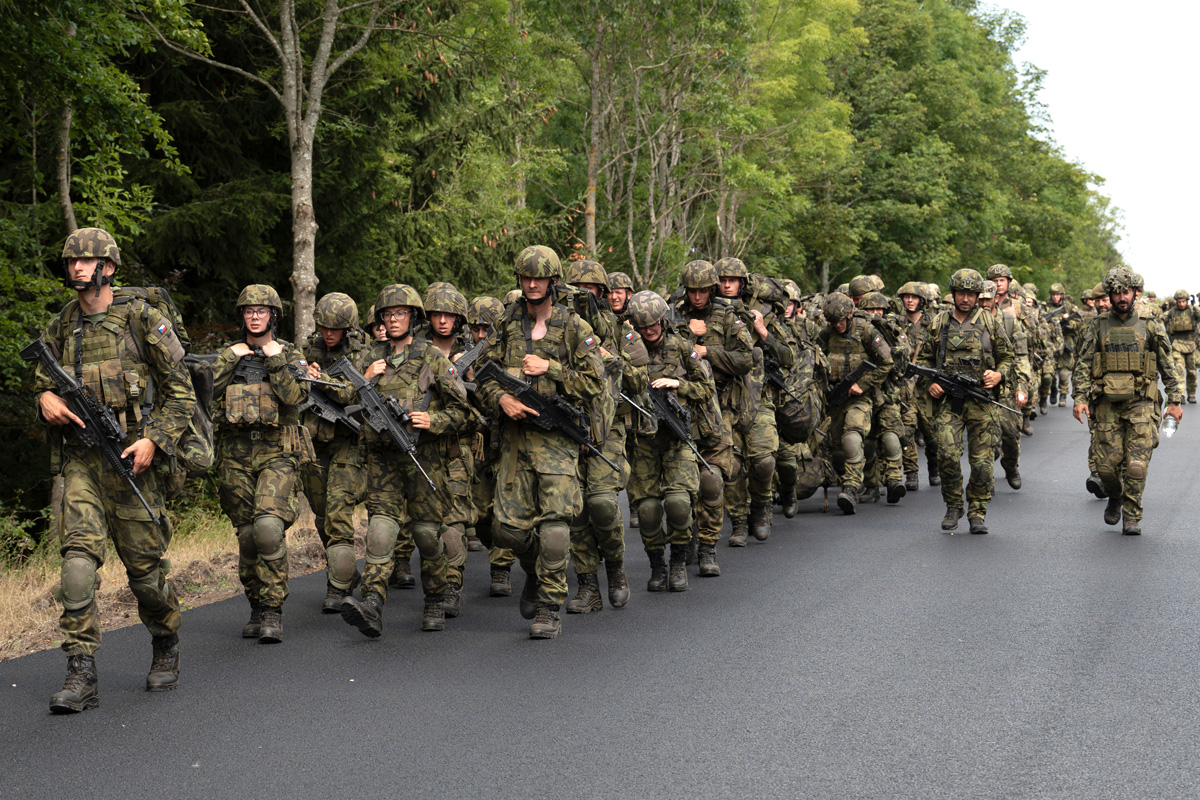
What are the biggest benefits you see in the potential transfer of DVC training to the Active Reserve?
Quality people are not only among professional soldiers, but also in the active reserve. Again, I return to what I have already suggested - let us work with quality people and give them the opportunity to show what they have. This gets back to talent management and the continued growth of capable people. With the cooperation and support of the combat instructors, it would make sense. The Active Reserve itself would also benefit, because the necessary experience would be passed on, and let's face it, the professional Army still has a lot to pass on to the Reservists. However, I can also imagine areas where, in turn, experts from the active reserve will pass on their experience to professional soldiers. The Active Reserve could then become a carrier of awareness of DVC and further spread it, after all, it is the members of the AR who are half-civilians who are in the civilian sphere and can thus explain why it is good to be a member of the Active Reserve or at least to be in the Reserves.
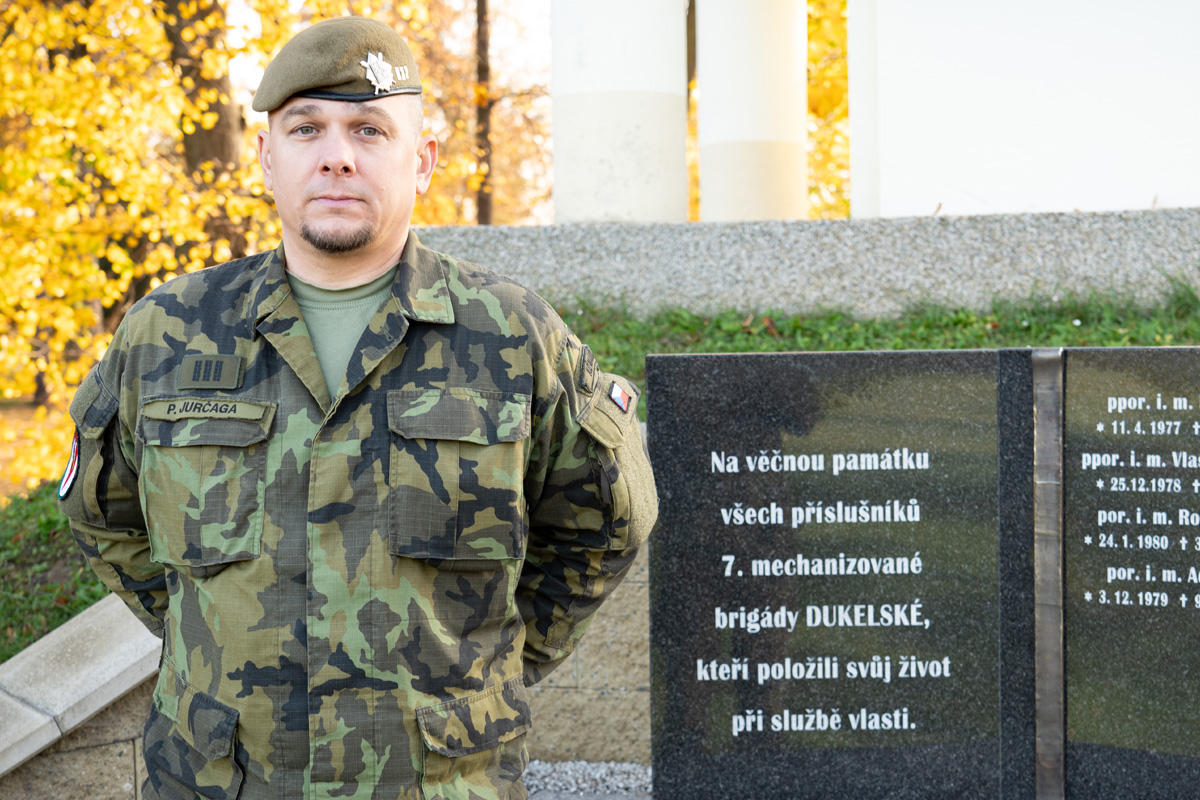
You met with the National Guard as part of your ensign training in the US. In your opinion, shouldn't the Active Reserve Infantry Companies under the Regional Military Command follow a similar path, and just as the National Guard in the US is at the Governor's disposal, should our Active Reserve be at the Governor's disposal?
First of all, active backup is an unfamiliar concept in the US, so there's not much to compare. Moreover, in the Czech Republic we would probably run into a legislative problem. The US has a federal structure, where each state that is in this federation has its own National Guard, which operates outside the structures of the US army. It is subordinate to the governor of that state and thus responds to the decisions that the governor makes. Those orders then do not necessarily always coincide with the orders that the President of the United States issues, which is why they have interesting situations where, for example, the Governor of Texas has called up the National Guard to protect the Texas border with Mexico without the approval of Congress or the President of the United States. I cannot imagine in our conditions that the governor of the Moravian-Silesian Region would independently call up an active reserve to protect the state border with Poland or Slovakia, even if it made sense at the time. A more likely option would be the immediate deployment of the active reserve, for example, to respond to floods, but the current system of requesting assistance from towns and municipalities to the army is based on a different principle. The National Guard, for example, does not address the legislative problem that our active reserve has in the form of employer resistance. In any case, a more flexible call-up of active reserve soldiers to meet the needs of the army would be a great relief, especially for the army, as shown by the recent floods already mentioned, where the reserves were able to participate in the liquidation of the damage. These forms of deployment are far better developed by the National Guard. Let us not look at the size of the countries and armies being compared, but at the legislative solutions, the level of patriotism, pride and the ability to help one's own people. We have some catching up to do in this area, which should be the cornerstone of our society.


















